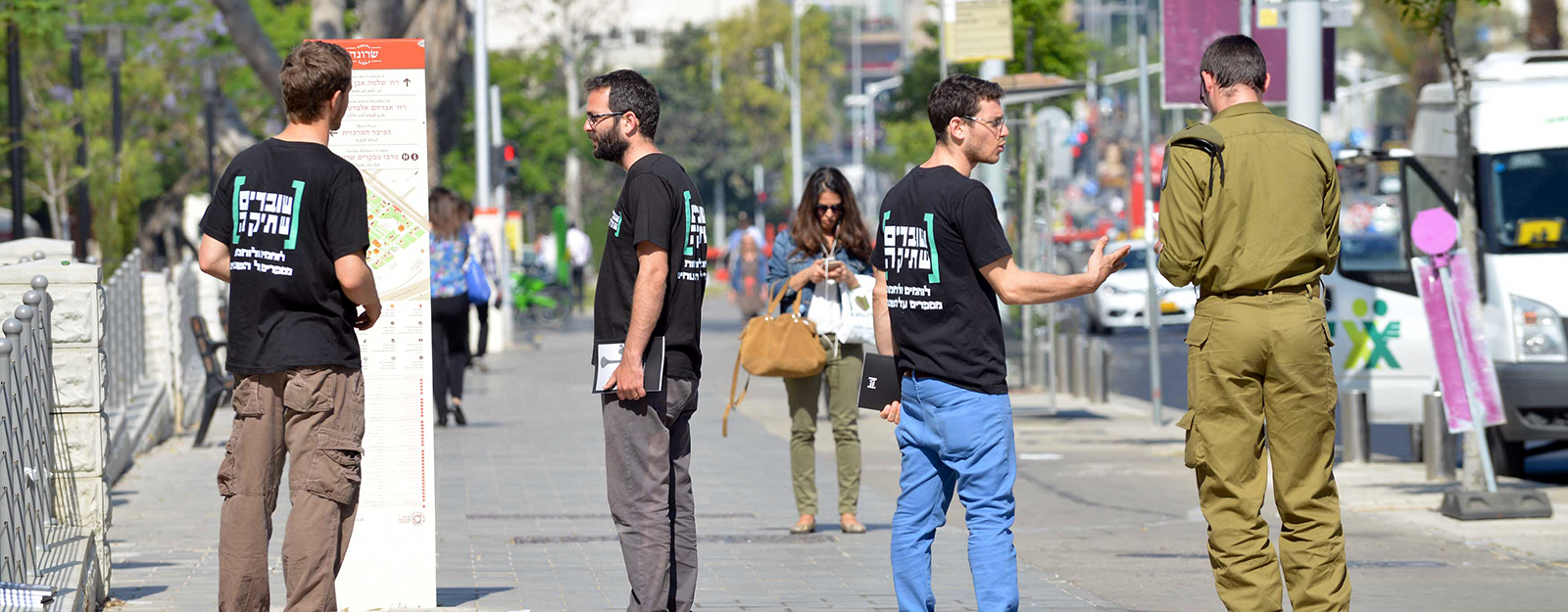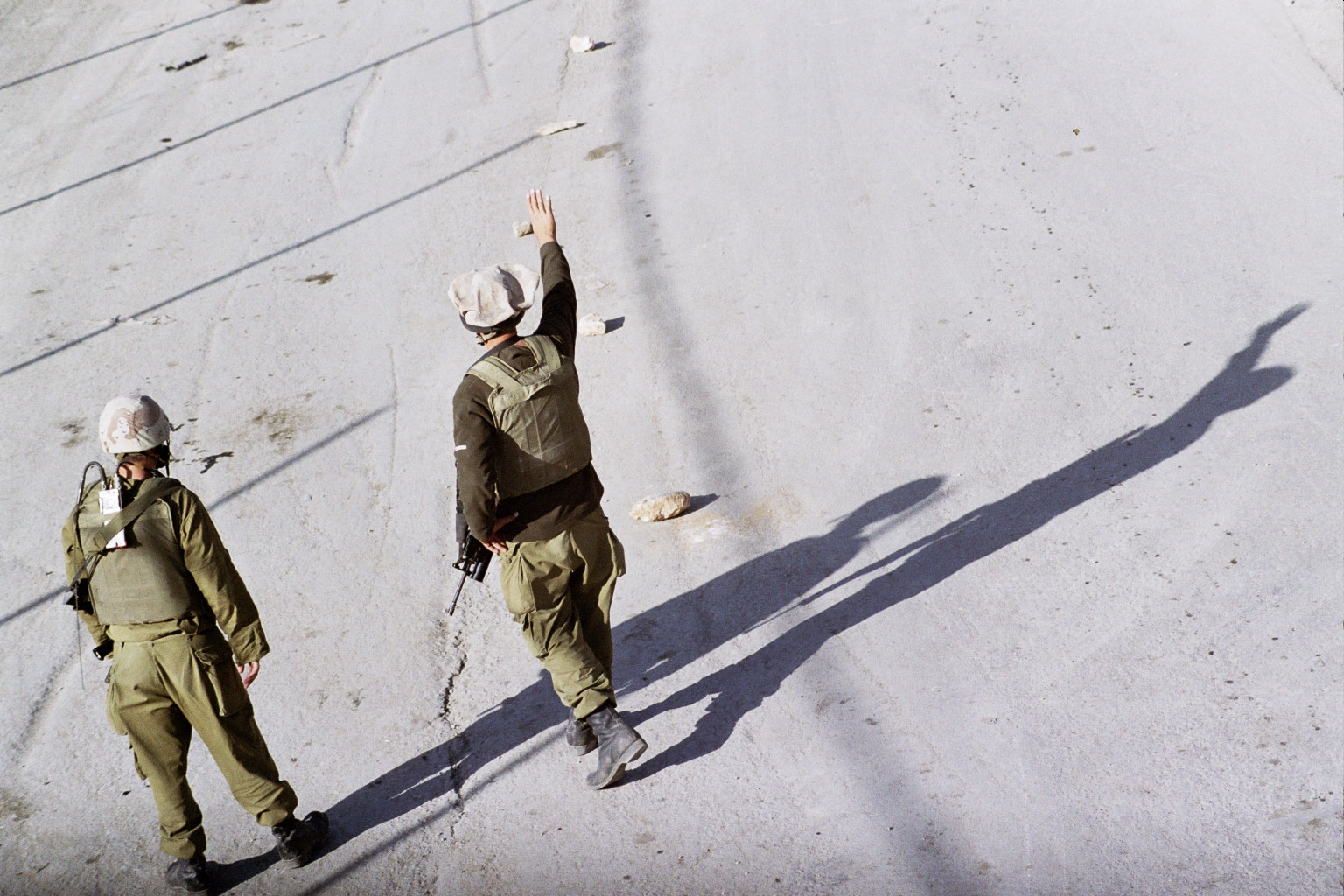What do you do with the boat when someone is arrested? You get close to the boat, you tell him that he’s going to get arrested – it’s a difficult thing, talking with the fisherman without knowing any Arabic. The commander has an Arabic conversation manual, but the conversation is minimal: “Who’s the boss here, get up near the bow, don’t get any closer, don’t dare do that, go south, go left, go north, go south.” You ask the people to gather at the vessel’s bow, you figure out who their boss is – the craft’s captain – and you ask them for their ID papers, you send their names back to headquarters to check and see if they’re wanted or not.
How do you collect their IDs? You get up close to them – this is why I say, it’s a problematic situation, when one relies on intelligence warnings. Usually there are no warnings about any larger weapons, you take your risk and get close to him. There’s this stick that’s used to fish things out of the water, and they put their IDs in a basket. Or sometimes you ask them to get undressed, down to their underwear, to make sure there’re no explosives on them and then you ask them to jump in the water and swim towards the Dabur. There’s a little rope ladder and they climb up to the deck and then you aim a loaded weapon at the person. The captive, after getting undressed, goes up to the deck using the rope ladder, as he climbs there are guns aimed at all times, with a blindfold on his eyes, and he is tied to the deck with a cable tie. If he’s cold you put a blanket on him, and it gets going – it can take between ten minutes to four hours – passing his name back to headquarters and waiting for their instructions. Again, these people are usually not wanted men. If we decide to take them back to the base in Ashdod, I don’t really know what that’s for…
Are there cases in which you’re instructed to return them? There are ‘half arrests’, in which you leave them for a long time, an Israeli Security Agency agent comes on the radio, you put it up to the captive’s ear and the agent asks some basic questions: name, fishing license, when did you set sail, where do you live, and then you return them to the boat and let them go. It’s sort of a half arrest. A full arrest is when you take most of the people off the boat and leave the youngest kid in there to steer the boat to Gaza, and you take the rest of the people – anywhere from one person to four – who you arrest. And it happens at night, too. There was a case during my regular duty in which we were asked to arrest a 60-year-old man, a fat guy, at nighttime, and the sea was pretty stormy. We were asked to take hold of him, and we told them this was simply not a request that we could follow. [The people on the boat] also yelled to us that he had heart problems and can’t swim. We told [headquarters] that this was not OK, and in the end they permitted us not to do it. You don’t need to do anything out of the ordinary for things to be aggressive. The very fact that you’re throwing a person into the sea, making him jump into the water at night when the sea is pretty stormy, the boat is rocking, it’s a big vessel – this is an aggressive thing unto itself.
Were there cases where a person’s boat was sunk when he was arrested? Yes, you grab the people and fire at the boat and sink it. It’s not a big vessel, it’s a raft, just a tiny fishermen’s boat.
As a punishment? As a punishment. Also ripping up their nets. There are different ways to punish them, one of them is to rip up their nets. You go there after the net has been cast, the fishermen’s boat leaves and comes back later to collect it, and we wait till it’s far away, the Dabur gets up close, and one of the soldiers pulls up the net and either you cut it up or you hang it onto something on the deck and steer backwards and rip it up. These are ways to deter the fishermen from entering the closed-off areas. This isn’t something out of the ordinary. After the Disengagement, (Israel’s withdrawal from the Gaza Strip in 2005) enforcement became much more aggressive. Things got easier – getting approval for arrests, to rip nets, or to fire at vessels’ hulls.









 testimonies
testimonies  media & content
media & content 










 Fishermen get arrested to deter them
Fishermen get arrested to deter them 

 terms of use & privacy policy
terms of use & privacy policy